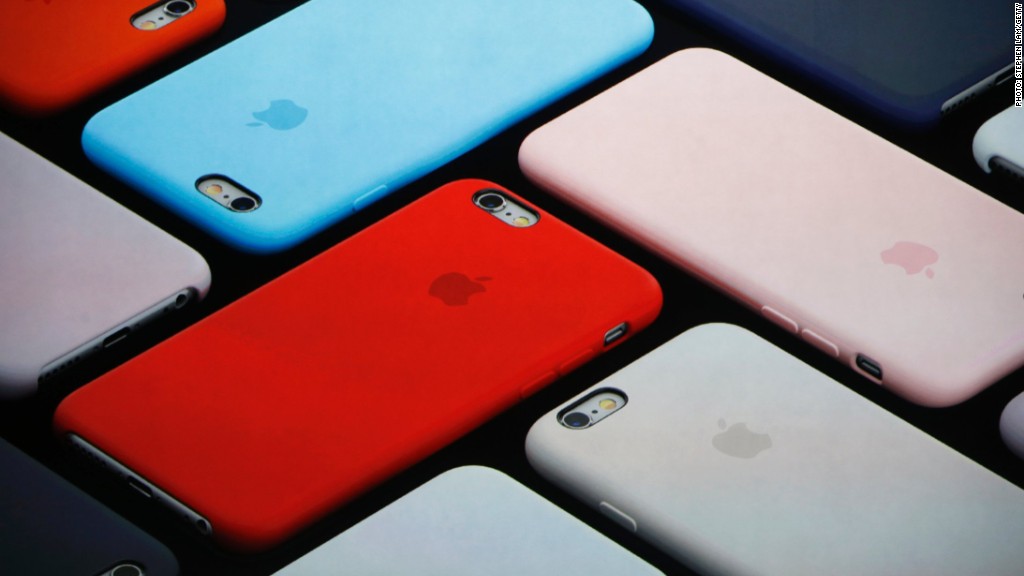
Is it possible people like their iPhones a little too much?
People are waiting longer to upgrade to the newest iPhone model, according to new research from Consumer Intelligence Research Partners (CIRP). Currently, nearly half of iPhone users are waiting until their device is two years old or older to upgrade. In 2013, only 34% of iPhone owners waited that long.
The regular iPhone upgrade cycle important to Apple's (AAPL) revenue. In its last xearnings report, Apple revealed that iPhone sales had dropped, leading to the company's first quarterly revenue decline in 13 years.
Related: Apple's iPhone sales sink for the first time ever last quarter
The slump is partially due to the company's struggles getting new users in markets like China. But in the U.S., where the market is already saturated, Apple needs people to upgrade at a regular clip.
The company releases a new iPhone every year, with the usual hyperbolic promises that *this* iPhone is the best iPhone ever (thinner! faster! pinker!). To sweeten the pot, it includes flashy new features like fingerprint ID, GIF-like photos, and new ways of tapping. It's an attempt to lure existing iPhone users away from their suddenly antique, one- or two-year-old phones.
CIRP partner Josh Lowitz says one reason for the slowdown is that the latest marquee features may not be different enough to justify a new phone. The other factor is a shift in how people buy phones in the U.S.
Carriers are moving away from the subsidized model where you get a heavily discounted iPhone when you renew a two-year contract. Now customers are paying full price for a new phone or breaking it out into monthly payments. A brand new iPhone 6S with 128GB of storage is $849.
Apple has launched its own program to try and encourage more regular upgrades. The company charges customers a monthly fee, starting at $32, to automatically get a new iPhone every year.
Correction: An earlier version of this story misstated the company's most recent earnings report. It was the first decline in revenue, not iPhone sales.

